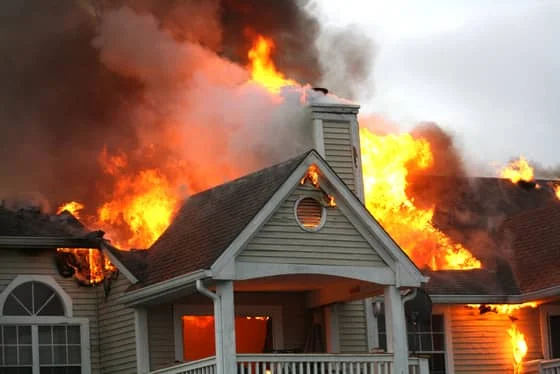Why Does Your Fire Alarm Keep Going Off?
The fire alarm is definitely one of the most important safety appliances in your home. More than being the first line of defense, it also gives you an alert when there is danger such as fire or smoke. But what happens when your fire alarm keeps going off, seemingly “for no reason”? You suddenly hear a loud noise that makes you panic, and you wonder what is wrong with your everyday life because that noise does not usually happen. However, there’s almost always a logical explanation for these so-called false alarms. Most importantly, these alerts should never be fully ignored because pinpointing the root cause is often key to ensuring the safety of your home and family.
In this extensive guide, we will take you through the most common factors that could trigger your fire alarms, troubleshooting tips to fix the problems and prevention measures to keep your alarm system healthy. As soon as you understand these factors, you can quickly tackle the causes of false alarms and ensure that your device works during real emergencies.
Common Causes of a Fire Alarm Going Off
1. Low or Dying Battery
One of the most frequent reasons a fire alarm keeps going off is a low or drained battery. Many modern smoke alarms are designed to signal battery issues with a warning chirp. However, in some cases, a dying battery can trigger a false alarm instead. Unfortunately, ignoring the warnings about low batteries is risky in the safety of the user.
2. Dust and Dirt Particles
Dust, dirt, and even tiny insects can interfere with a fire alarm’s sensors. Smoke detectors rely on detecting small particles in the air, so excessive dust, particularly in poorly ventilated homes or during construction projects, can lead to regular false alarms.
3. Steam and Humidity
Excessive levels of steam or humidity can mimic smoke particles, causing the alarm to sound falsely. This type of problem generally occurs in areas such as the bathroom, the kitchen, or other areas that are very likely to have moisture accumulation. For example, the actions of boiling hot water and taking a hot shower with no ventilation can stimulate this.
4. Airflow and Temperature Changes
Fire alarms may be highly sensitive to sudden changes in temperature or airflow from drafty windows, air conditioning units, or heating vents. These variations can disrupt the sensors and cause your fire alarm to keep going off unnecessarily.
5. Aging or Malfunctioning Alarms
Smoke detectors are designed for a limited period of 8 to 10 years. Within this time their components incur degradation and possibility of failure, resulting in frequent false alarms. If your fire alarm frequently goes off without a clear reason, it may simply be too old to function reliably.
6. Electrical Issues in Hardwired Alarms
For homes equipped with hardwired fire alarms that run on your home’s electrical system, power problems can occasionally cause false alarm triggers. Power surges, wiring issues, or loose connections may be to blame.
Troubleshooting Tips for Persistent Alarms
If your fire alarm keeps going off, follow these troubleshooting steps to resolve the issue and regain peace of mind:
1. Test the Unit
To check whether it is actually functional or faulty, press the ‘test’ button on your fire alarm.
2. Check the Battery
Replace the battery even if the alarm hasn’t indicated an alert if protracted problems occur. Most problems usually get solved with a new battery.
3. Clean the Sensors
Removing the unit and cleaning around the sensors with a vacuum or compressed air should be avoided, using harmful chemicals for this purpose.
4. Move the Alarm
Move moisture-prone or vent-close units to other places. Install smoke alarms in such areas as bedrooms, hallways, and central living spaces-always at least 10 feet from kitchens and bathrooms.
5. Inspect Hardwired Connections
For hardwired models, ensure that all wiring connections are intact. If you’re uncertain, consult an electrician to perform a thorough review.
Preventive Measures for a Safer System
Proactive maintenance is the key to escaping the loop of recurrent errors with your fire alarm. Here’s how you can keep your alarm system working efficiently all the time:
- Establish a Maintenance Routine: Replace the batteries in smoke detectors twice every year, clean the alarms every three months, and conduct monthly tests to ensure that everything is functioning normally.
- Upgrade to Modern Alarms: Invest in new-generation alarms equipped with advanced filters to reduce false alarms from dust or humidity while offering dual fire and carbon monoxide detection.
- Optimize Placement: Follow expert recommendations for alarm installations. It is advisable not to install the alarm into high-rain-areas or into ducts and vents that can create an immediate temperature difference.
- Improve Home Ventilation: For constant humidity and cooking smoke, exhaust fans and dehumidifiers may reduce, substantially, the incidence of false triggering.
Stay Ahead of False Alarms for Safety and Peace of Mind
The next time your fire alarm keeps going off, take a moment to investigate the potential causes. While it’s tempting to dismiss false alarms as annoying malfunctions, they are often indicators of a deeper issue—be it a low battery, environmental factors, or an aging device. Identifying and addressing these problems early ensures your home remains safe and your fire alarm system reliably protects you when it matters the most.
Your home’s safety isn’t something worth leaving to chance. Take a few moments today to inspect and maintain your smoke detectors. That small effort could make all the difference in preserving the safety of your household in a real emergency. After all, a well-functioning fire alarm isn’t just a device—it’s peace of mind!

